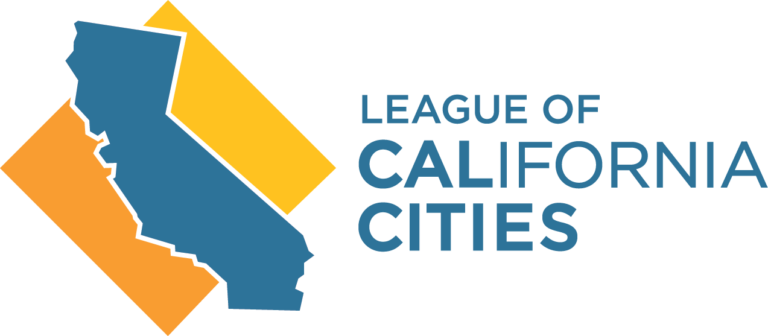Resources
Frequently Asked Questions (FAQs)
What is CSCDA?
The California Statewide Communities Development Authority (“CSCDA”) is a joint powers authority sponsored by the League of California Cities (“League”) and the California State Association of Counties (“CSAC”). CSCDA was created by the League and CSAC in 1988 to enable local government and eligible private entities access to low-cost, tax-exempt financing for projects that provide a tangible public benefit, contribute to social and economic growth and improve the overall quality of life in local communities throughout California. CSCDA has issued more than $75 billion through 1,800+ financings since 1988.
What is a Joint Powers Authority?
Under the Joint Exercise of Powers Act, two or more public agencies may by agreement jointly exercise any power common to those public agencies. CSCDA was established with the purpose of issuing bonds to finance projects within the jurisdiction of member public agencies to promote public benefit and pursue economic development.
How many public agencies are Program Participants of CSCDA?
Currently more than 530 California cities, counties, special districts and other agencies are members of CSCDA.
What CSCDA tax-exempt finance programs are available to qualifying nonprofit and private sector projects?
The following programs are offered by CSCDA to qualifying nonprofit and private-sector projects that provide public benefits to their communities:
- 501(c)(3) Nonprofit Bonds
- Multifamily and Senior Housing Bonds
- Exempt Facilities / Solid Waste / Recycling Facilities and Equipment Bonds
- Taxable Bonds
What CSCDA finance programs are available to public agencies?
A number of programs are offered by CSCDA that directly benefit California public agencies, including:
- Statewide Community Infrastructure Program (SCIP)
- Community Facility District Financing (CFDs)
- Total Road Improvement Programs (TRIP)
- Property Assessed Clean Energy (PACE) Financing
What benefits does CSCDA offer to the nonprofit and private sectors?
CSCDA offers numerous benefits to the nonprofit and private sectors, including:
- Cost effective bond financing for a wide range of public benefit projects.
- Statewide joint powers authority status, allowing the financing of projects virtually anywhere in California.
- In depth knowledge on the issuance and post issuance compliance requirements of private activity bonds, including the state volume cap process when applicable.
- Extensive experience in working with all public finance professionals covering the California marketplace.
- Recognized identity in the tax-exempt marketplace, which is key to marketing the sale of bonds.
- Predictability, responsiveness and an unparalleled level of service.
- Minimal bureaucracy and paperwork.
How does a public agency become a Program Participant of CSCDA?
Any city, county, special district or other California local agency can become a member of CSCDA simply by having its governing board adopt a resolution and execute the joint powers agreement.
How much does it cost a public agency to be a Program Participant of CSCDA?
There’s no charge to become a member of CSCDA.
Does a public agency incur any liability by being a Program Participant of CSCDA?
No. The bonds issued by CSCDA are limited obligations of the borrower, not CSCDA or the Program Participant. The CSCDA joint powers agreement expressly provides that CSCDA is a public entity separate and apart from the Program Participants, and “its debts, liabilities and obligations do not constitute debts, liabilities or obligations of any party to the joint powers agreement.” The Program Participants are not responsible for any repayment of debt by borrowers, nor are they named in any of the bond documents.
What control does a Program Participant have in determining whether a project within its local jurisdiction is financed through CSCDA?
Federal tax law and Section 9 of the CSCDA joint powers agreement require that a public hearing be held in the jurisdiction where the project is located. This provides members of the public and the governing board the ability to comment and approve or disapprove the issuance of bonds for the project. Any project not approved by the local jurisdiction will not be financed through CSCDA.
Audits & Transaction Reports
The CSCDA Commission meets periodically to review and authorize the issuance of all bonds for projects issued through CSCDA. All projects are approved in open meetings of the Commissioners that are publicly noticed at least 72 hours in advance on the CSCDA website.
CSCDA fully complies with SB 99, the Conduit Financing Transparency and Accountability Act (the “Act”), and annually files with the State Controller’s Office Division of Accounting & Reporting financial transaction reporting forms aimed at ensuring all conduit issuers in California comply with the Act.
Click on the following links to download the CSCDA annual list of approved financing applications, audit and annual financial transactions reports:
2025 Audit
2024 Audit
2023 Audit
2022 Audit
2021 Audit
2020 Audit
2019 Audit
2018 Audit
2017 Audit
2016 Audit
2015 Audit
2014 Audit
2013 Audit
2012 Audit
2011 Audit
2010 Audit
Annual Financial Transactions
List of Approved Transactions


